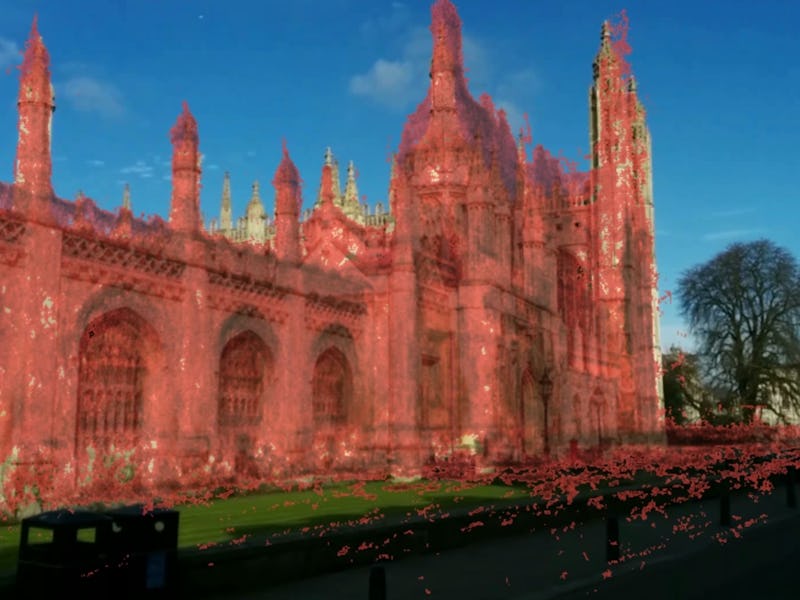Location Data Can Now Be Pulled From Photos (of Cambridge, England) With PoseNet
The system can also predict the orientation of the photographer when the photo was taken with shocking accuracy.

Every photo you take with your smartphone has GPS coordinates automatically attached. This makes it possible for apps like Instagram to discern where the photo was taken with the help of location services. PoseNet, a new program being developed at the University of Cambridge, seeks to reverse engineer that process, allowing users to figure out where they are by entering a photo into a system capable of determining location and even orientation. Humans naturally navigate by a combination of feeling and landmarks. If GPS replaces the feeling half of that equation, PoseNet replaces the landmark half.
Developed by engineering researchers, the system relies on convolutional neural networks to figure out where a photo was taken, something they can do to within six feet and three degrees, which is groundbreaking to put it mildly. GPS solutions have never offered orientation metadata.
Another remarkable aspect of the PoseNet project: Its neural networks rely on a database of less than 50 megabytes, which is thousands of times smaller than most GPS databases. This makes PoseNet incredibly fast. It requires roughly five milliseconds to interpret the photo and establish a location, whereas GPS can take up to several seconds. PoseNet also function better indoors.
While PoseNet’s super speed and small data storage requirements beg for the system’s global expansion, there are also some concerns about privacy. Most smartphone users are voluntarily collecting data on their own behavior (whether they choose to think of it that way or not). PoseNet could make that involuntary. The system’s accuracy is both its principle virtue and its main weakness.
The app can tell the difference between the different sides of this building
Since PoseNet is still in its beginning phases, it only functions in one part of Cambridge, England, where the 12,000 photos that trained the database were snapped. But we very well may see PoseNet take hold in other locations. This may be particularly interesting/worrisome to Google, which recently launched PlaNet, a program designed to establish a photo’s location just by looking at it. For now, it seems that PoseNet can kick PlaNet’s ass, but that may change over time or if someone gets acquisitive.
This predicted image was only off by 1.51 meters (location) and 3.27 degrees (photographer position)
PoseNet’s global expansion is hardly inevitable and may take years. It may also never be as universally helpful as GPS (think: who’s going to go harvest photo data in the middle of the Amazon). Still, it has clear application for smartphone users and for data analysts. In a sense, the question is which of those groups will ultimately find it more helpful.